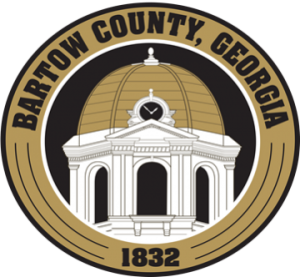Dish soap and water are often referred to as the cure-all for managing garden insects such as aphids. Understanding how soap impacts insects and how to best use soaps means better insect management and healthier plants.
We still don’t understand exactly how soap kills or doesn’t kill an insect. The leading theory is that the soap breaks down cell membranes and disrupts the insect’s cuticle, which is a protective waxy coating on the insect’s body. Also, soap disrupts the surface tension of water, which readily penetrates insect spiracles (respiratory openings), reducing oxygen availability. Thus, part of the soap’s mode of action is the “drowning” of exposed insects.
Because of this potential cause and effect, only certain insects are susceptible. Small, soft-bodied insects are those most likely to be controlled. The soapy water covering their bodies apparently causes them to quickly dry out and die. Soapy water is occasionally effective on larger insects, such as boxelder bug nymphs.
This means that soap is generally safe (or low toxicity) for pollinators and natural enemies. As long as you aren’t coating them in the soap, they shouldn’t be bothered. Soapy water is not a universal insecticide. This is good. It allows us to preserve beneficial insects in the garden. However, it also means that not every insect will be controlled by soap.
Soap is a good match with a bucket of water because it breaks the surface tension on the water and causes insects to sink into the water and drown. If you have the patience for handpicking bugs off your plants, you can easily drown them in a bucket of soapy water. This method is commonly used for caterpillars (i.e. tomato hornworms), stink bugs, squash bugs, and various beetles.
Aphids, whiteflies, thrips, mealybugs, and spider mites are all good candidates for soapy water sprays. Large-bodied insects like caterpillars and beetles – including Japanese beetles – are unlikely to be affected by spray-on applications.
The soapy water needs to not just touch the insect but also coat the insect’s body in order to be effective. This means turning over leaves to reach insects on the underside of leaves or spraying from the bottom up. A bonus effect is that many of these small insects will be knocked off the plant if the spray is high pressure, so you get both physical and chemical control in one spray.
Because soapy water only works by direct contact to the insects, sprays need to be made whenever new insect populations appear and start to increase. Spraying soap directly on the leaves when no insects are present is not effective, as soap doesn’t bother insects if they eat it. It only works if it contacts their body.
Some gardeners purchase ready-to-use insecticidal soaps while others will make their own solutions using dish soap and water. If you are in the latter group, aim for a 1 to 2% soap solution: add 1 to 2 teaspoons of dish soap to 1 pint of water. Regardless of what product is used, be sure to test soap sprays for plant toxicity on a small area of the plant for a couple days prior to widespread use.
Dish soaps are referred to as “hard” soaps (sodium salts) and high concentrations of these soaps can burn plant foliage, especially when plants are stressed, temperatures are over 90°F, and humidity is high. This is pretty much every summer afternoon in Georgia.
There are commercially available insecticidal soaps (potassium salts of fatty acids) referred to as “soft” soaps, which are formulated to reduce the chances of plant damage. You can buy one that you dilute yourself, or one that is ready to use (abbreviated as RTU on some products). These are sold at most local garden supply stores under a variety of brand names. Soft soaps are typically safer for plants and more effective than hard soaps at controlling insects.
Some plants are very sensitive to soapy sprays, and are not good candidates for their use. This list includes hawthorn, sweet pea, portulaca, cherries, plum, and some tomato varieties that can also be damaged. When diluting out concentrated products, start with the lowest recommended rate first. Spraying during the cooler morning hours can also minimize potential damage.
Paul Pugliese is the Extension Coordinator and Agricultural & Natural Resources Agent for Bartow County Cooperative Extension, a partnership of The University of Georgia, The U.S. Department of Agriculture, and Bartow County. For more information and free farm, lawn, or garden publications, call (770) 387-5142 or visit our local website at extension.uga.edu/bartow.
